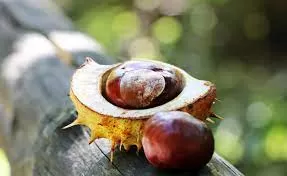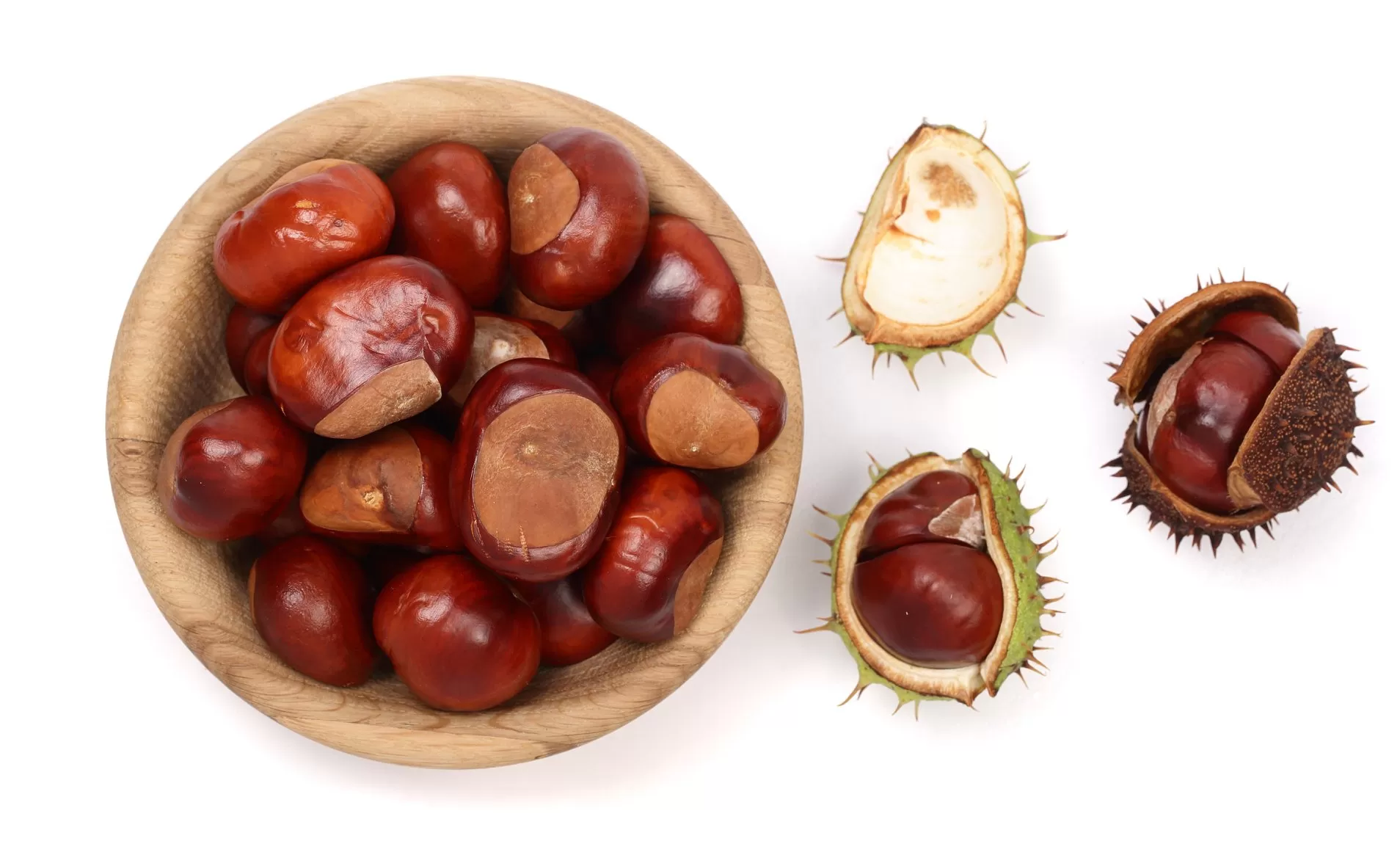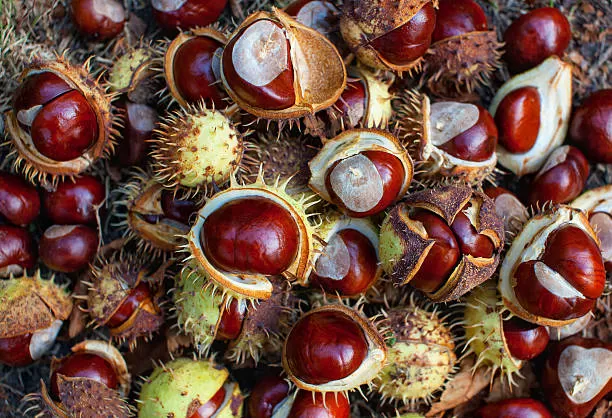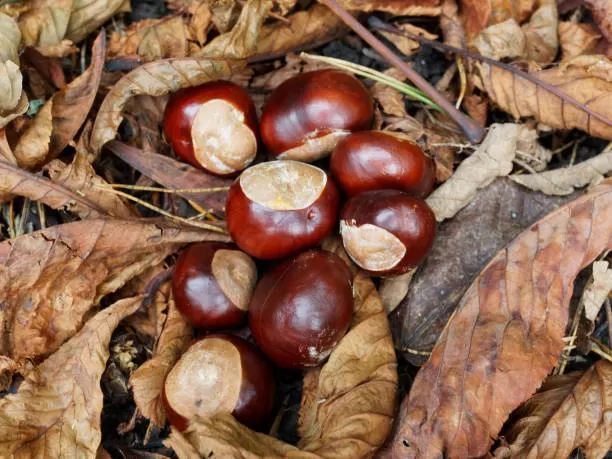- 0086-571-85302990
- sales@greenskybio.com
Does horse chestnut affect blood pressure?
2025-04-28
In recent years, there has been increasing interest in the use of herbal remedies and dietary supplements to manage various health conditions. One such herbal remedy that has garnered attention is horse chestnut, scientifically known as Aesculus hippocastanum. Native to the Balkan region, this tree is renowned for its medicinal properties, particularly the seeds which have been used in traditional medicine for centuries. The active component in horse chestnut seeds is aescin, a compound that has been studied for its potential health benefits, including its effects on blood circulation and vascular health. However, the question remains: Does horse chestnut affect blood pressure?
Understanding Horse Chestnut
Horse chestnut is often utilized in the treatment of chronic venous insufficiency (CVI), a condition characterized by poor blood flow in the veins of the legs. Aescin, the key active ingredient found in horse chestnut seeds, is believed to improve vein health and reduce symptoms associated with CVI, such as swelling, pain, and heaviness. Beyond its application for venous conditions, there is growing inquiry into whether horse chestnut might influence blood pressure levels.
Blood Pressure: A Complex Mechanism
Blood pressure is a critical indicator of cardiovascular health, representing the force exerted by circulating blood on the walls of blood vessels. Hypertension, or high blood pressure, is a leading risk factor for cardiovascular diseases, including heart attack and stroke. Normal blood pressure is vital for ensuring adequate oxygen and nutrient delivery to tissues throughout the body. Consequently, understanding how medications or supplements like horse chestnut could impact blood pressure is of paramount importance.
Investigating the Link
The mechanism by which horse chestnut could potentially affect blood pressure primarily revolves around its vascular properties. Aescin is known to have anti-inflammatory and vasoprotective effects, which might contribute to overall cardiovascular health. These properties have led researchers to hypothesize that horse chestnut could influence blood pressure, either by directly altering blood vessel function or by indirectly impacting factors such as fluid retention and venous return.
However, scientific studies specifically addressing the effects of horse chestnut on blood pressure are limited. Most clinical research has focused on its efficacy in treating CVI without delving deeply into blood pressure alterations. Some studies have suggested that horse chestnut improves venous tone and reduces capillary permeability, thereby potentially contributing to improved vascular function. While improved vascular function might suggest a benefit for blood pressure regulation, direct evidence supporting this claim is sparse.
Clinical Evidence and Safety Considerations
A review of available literature reveals mixed results regarding horse chestnut's influence on blood pressure. Some practitioners have observed improvements in patients' overall wellness, including stabilizing blood pressure, but these observations are largely anecdotal. Furthermore, safety remains a concern when using horse chestnut supplements, particularly relating to their potential side effects such as gastrointestinal discomfort, dizziness, or allergic reactions. It is crucial for consumers to consult healthcare professionals before starting any new supplement regimen, especially if they have pre-existing health conditions or are taking other medications.
Moreover, individuals with hypertension are often advised to approach supplements cautiously due to potential interactions with prescribed antihypertensive drugs. The absence of comprehensive studies on horse chestnut's impact on blood pressure means that any recommendation should be made judiciously.
Future Directions for Research
Given the potential vascular benefits of horse chestnut and the need for clarity regarding its effects on blood pressure, future research is imperative. Randomized controlled trials with large sample sizes could provide valuable insights into whether horse chestnut directly influences blood pressure and how it might be integrated into broader cardiovascular treatment protocols.
Researchers could explore the synergistic effects of horse chestnut in conjunction with other treatments for hypertension, as well as its long-term impact on arterial health. Additionally, studies focusing on specific populations, such as individuals with borderline hypertension, may yield more targeted results.
Conclusion
The use of horse chestnut as a herbal remedy carries a promising potential due to its vascular properties. However, while there is a theoretical basis for believing it could positively influence blood pressure, definitive scientific evidence remains scarce. Health professionals and patients should exercise caution, emphasizing a balanced approach between traditional medical treatments and herbal supplements.
Until more robust data is available, horse chestnut may be best regarded as a complementary treatment for venous insufficiency rather than a standalone therapy for managing blood pressure. As with any supplement, personalized medical advice from qualified professionals is indispensable in ensuring safe and effective use, especially for those navigating the complexities of cardiovascular health.
In summary, horse chestnut remains a topic of intrigue, and continued research could unlock its full potential in the realm of cardiovascular wellness, offering new options for managing blood pressure in the future.
- ▶ Hesperidin
- ▶ citrus bioflavonoids
- ▶ plant extract
- ▶ lycopene
- ▶ Diosmin
- ▶ Grape seed extract
- ▶ Sea buckthorn Juice Powder
- ▶ Beetroot powder
- ▶ Hops Extract
- ▶ Artichoke Extract
- ▶ Reishi mushroom extract
- ▶ Astaxanthin
- ▶ Green Tea Extract
- ▶ Curcumin Extract
- ▶ Horse Chestnut Extract
- ▶ Other Problems
- ▶ Boswellia Serrata Extract
- ▶ Resveratrol Extract
- ▶ Marigold Extract
- ▶ Grape Leaf Extract
- ▶ blog3
- ▶ blog4
- ▶ blog5
-
Is horse chestnut FDA approved?
2025-04-28
-
Is horse chestnut extract safe?
2025-04-28
-
Is horse chestnut good for your legs?
2025-04-28
-
Hawthorn powder
2025-04-28
-
Yohimbine Bark Extract
2025-04-28
-
Black Rice Extract
2025-04-28
-
Moringa powder
2025-04-28
-
Buckthorn bark extract
2025-04-28
-
Polygonum Cuspidatum Extract
2025-04-28
-
Phyllanthus Emblica Extract
2025-04-28
-
Panax Ginseng Leaf Extract
2025-04-28
-
Berberis aristata Extract
2025-04-28
-
Dan Shen Root Extract/Salvia Root Extract
2025-04-28






























